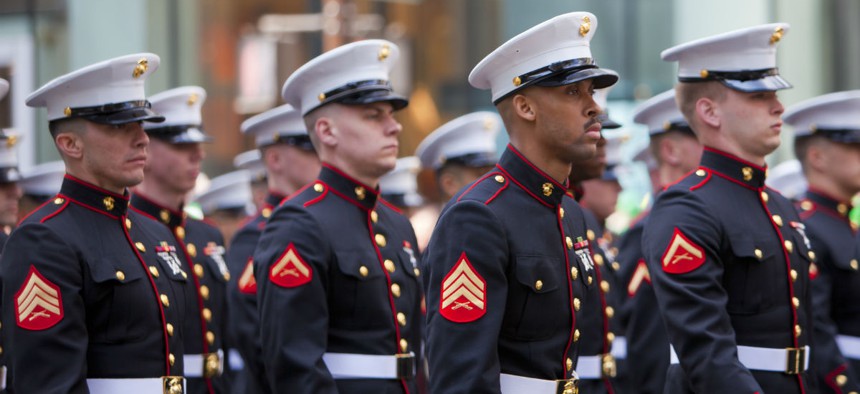Advice From a Marine: 3 Questions All Leaders Should Ask Themselves
A battle-tested approach to leading people effectively.
In October 2009, I found myself in an armored SUV racing up the main highway out of Manila. I was headed north to link up with fellow U.S. Marines and colleagues from the Armed Forces of the Philippines, in a place called Tarlac. Four other people were with me. The driver, a combat-proven senior enlisted member of the Armed Forces of the Philippines, and three fellow Marines, one of whom was carrying a briefcase full of cash while another was armed with the contracting expertise required to lawfully use the cash to support our mission.
Our mission was very clear: save lives and relieve the pain and suffering of the Philippine people. Time was of the essence; Luzon had been struck by multiple typhoons, which had flooded the island’s valleys. The worst affected area was the province of Tarlac.
Our team was tasked to meet up with Philippine counterparts we had never worked with before and rapidly assess the situation to determine where to deploy and employ the helicopters, medical supplies and trucks on U.S. Navy Amphibious ships based off the coast of Luzon. As we raced north, the following questions raced through my head:
- What do you know?
- Who needs to know it?
- Have you told them yet?
These important questions had served me well throughout my career so it wasn’t surprising that they surfaced in my mind. These are the questions that today's leaders, especially those who embrace the idea of "transparency," must ask themselves when faced with a problem that only a diverse group or team can solve.
When a leader asks: What do I know?
She will be more likely to assess the environment and begin the process of gathering information to inform decision-making. Decision-making is integral to solving problems. As I raced north to Tarlac, this important question made me think about the key tasks that mattered most to accomplish my mission and to identity the gaps in knowledge. I then worked to fill those gaps by asking questions of my team in the SUV and from subject matter experts based at a headquarters in Manila.
When a leader asks: Who needs to know it?
He is more likely to think about the needs of others first, and then work to share the information with other members of the team who have knowledge gaps. In rapidly developing situations and in today's constantly connected society, sharing information with the right people and the right time can mean winning new business or losing a prized client. In some cases, knowing who needs the information can be a matter of life or death.
When leader asks: Have I told them yet?
She is likely to take action and share what she knows with the right person at the right time and place. Asking myself this question, as our driver deftly maneuvered in and out of traffic, prompted me to call ahead to Tarlac and share vital information with our host nation partners and U.S. Marine small boat unit leaders, who had been moved ashore to the flood-stricken areas. My sharing of the right information, with the right people at the right time -- and other leaders doing the same -- allowed the leaders on the ground to make the rapid decisions necessary to save lives and relieve the pain and suffering of the Phillipine people, in partnership with people we had never worked with previously.
Why were we successful? We were successful because leaders embraced the idea of transparency and then acted on it. Inspired by asking themselves: What do I know? Who needs to know it? Have I told them yet?
Ask yourself these questions when you are working to solve a problem, large or small, and then share the results with us. We need to know. Learning, like leadership, is continuous.
Raphael Hernandez is a marketing and talent acquisition executive, and Marine Corps veteran.







